|
Dead Rock West: Live At McCabe's — Glitter & Gold Record Release Celebration Concert review by Eric Sandberg Photos by Eric Sandberg If Dead Rock West were ever to saunter onto the stage of America's Got Talent, and stand before whatever four schlubs are the current sitting judges, they could sing any song from their repertoire and shortly find themselves covered in Golden Buzzer confetti. Their music is as American as music gets, whether they're singing covers or their own first rate songs, the combined voices of Cindy Wasserman and Frankie Lee Drennen immediately evoke the Everly Brothers, without copying them. They clearly embrace the similarities, having just released their second collection of Everly's covers Glitter & Gold, which also features one new song written by Drennen and Exene Cervenka. The Cars' Elliot Easton and The Blasters' Dave Alvin let loose on guitar and two tracks feature the late, great Ratdog bassist, and brother to Cindy, Rob Wasserman. Many of the tracks also feature The Section (String) Quartet. As worthy counter-programming to the Emmys, Dead Rock West played an intimate show at McCabe's Guitar Shop in Santa Monica Sunday night to celebrate the release of Glitter & Gold. They opened the first set as a duo, performing an impassioned rendition of the title track from their previous, John Doe produced, album of all original songs More Love. Then, as is custom, Wasserman launched into a powerful accapella reading of the hymn-like "Tell the Angels" from their Peter Case produced album Bright Morning Stars, serving as a walk-on for Dead Rock West's band, consisting this evening of Geoff Pearlman on electric and acoustic guitar, David J. Carpenter on uke bass and upright bass, and the natty Phil Parlapiano on keys. The first set heavily showcased songs from the brilliant More Love, including "Stereo," "Boundless, Fearless Love," "Nail Gun" and "Darkness Never Tells," featuring a fantastic San Francisco psychedelic extended tele solo from Pearlman. ...at this point I would like to digress from my admittedly dry account of the evening's festivities, because I have a purpose here, and that purpose is to get you to check out Dead Rock West. I do not possess the talent to describe how wonderful they are. Cindy and Frank knew, coming down the creaky wooden stairs, that the audience was going to be on the smaller side — the folding chairs were set with two spacious aisles, did not extend to the back wall and were not all filled. Yet they thanked the diminutive, but exuberant crowd for being there on a Sunday night opposite the Emmys and performed as if they were in front of a sell-out crowd at the Hollywood Bowl. Cindy Wasserman is a sensational vocalist who can out warble more famous divas with one tonsil tied behind her uvula. Frankie Lee Drennen gives everything he has to each song. Like a method actor, he becomes the heartsick people in his lyrics, his face contorting as other spirits seem to inhabit his body. The touch players who back them add delightful color to the performances but Dead Rock West is powered by Drennen's acoustic guitar and the arresting voices of the pair. I have no doubt that a set with just the two of them would be no less enthralling. Towards the end of the show Dead Rock West played several brand new, yet to be recorded, songs that suggest their next album of original material could take them to yet another level. This band deserves an audience. Calling all hip cats who need something to get excited about!
0 Comments
Former Genesis Guitarist talks about breaking in a new drummer, working with an orchestra & his early guest singers Interview by Eric Sandberg In early 1971, Steve Hackett's ad in Melody Maker seeking musicians "determined to strive beyond current stagnant musical forms" had paid off. Genesis, already with two major label albums to their credit, had just lost their guitarist and main writer Anthony Phillips to stage fright. The ad caught singer Peter Gabriel's attention. Hackett was asked to join the band, along with their first "proper" drummer Phil Collins. Hackett and Collins were initially kindred spirits as they were the two commoners among a trio of posh friends who once all wore Charterhouse school uniforms. One can only imagine the many times Hackett and Collins shot furtive glances at each other whenever Genesis founders Peter Gabriel, Mike Rutherford and Tony Banks experienced a "disagreement" in the rehearsal studio. Hackett's unique playing style (he employed 'hammer-ons' nearly a decade before Eddie Van Halen) and compositional chops made an immediate impact on Genesis's sound — coupled with Collins's skilled drumming and vocal contributions that helped soften the impact of Gabriel's often harsh delivery. Five years later, Gabriel left to start a solo career and Collins was promoted to front man. With each new album as a foursome, and with Collins emergence as a writer, Hackett became frustrated with his contributions being consistently voted down for inclusion on albums. Genesis's fortunes were on a steady rise but Hackett chose musical autonomy over a regular dole and bravely left the band. For his first post Genesis solo album Please Don't Touch Hackett employed some heavy hitters as singers on an eclectic array of songs that touched upon folk, jazz-inflected pop and rock. Steve Walsh, from American prog rockers Kansas, folk icon Richie Havens and future jazz & R&B star Randy Crawford, whom Hackett saw perform in a Chicago nightclub, all appear and showcase Hackett's tremendous skill and versatility as a songwriter. When it came time to tour, these fine singers would not be available, hampering his ability to promote the album. but he forged ahead, putting together a self-contained unit featuring singer Pete Hicks. Hackett worked very hard and eventually improved his own singing voice to the point that he felt comfortable singing his own songs. Fast forward forty years and Steve Hackett is still at it, boasting a solo catalog which nearly eclipses the combined total output of his former band mates while retaining a remarkably high standard of creativity and performance. Steve Hackett has just started the North American leg of his current world tour which, in addition to supporting his latest studio album At the Edge of Light, will include a healthy dose of Genesis and early solo classics, even rewriting history a bit by performing songs that were written with Genesis but didn't make it onto the albums — a thoroughly justified conceit as some of his former Genesis mates now concede in hindsight that the songs in question should have been included. In October, Hackett will release a new live album and Blu ray of his band performing live with an orchestra at The Royal Festival Hall in London. I got to speak with Steve about all of this and also asked him if he had ever considered coming full circle and writing an album of songs for others to sing. Eric: A rock band playing on stage with an orchestra is not a new idea. You can go back to The Moody Blues and Deep and Purple in the sixties... Steve Hackett: Even The Shadows, in fact. Eric: ...but, to this day, it is no less daring and risky. SH: Helen Fitzgerald, with whom we just spent a holiday at her home in Crete, (read Steve's travel blog here: http://www.hackettsongs.com/blog/steve229.html), coordinated this with The Heart of England Philharmonic Orchestra. She also plays cello with them. I think I've got the only copy right now and it looks and sounds spectacular, if you like groups and orchestras. They're impossible things together. It takes incredible precision. You can't possibly get that many musicians playing in time and in tune like that. According to Helen, when the musicians received the scores, some of them said, "I can't play this! It's impossible!" But they did. Eric: Your music is already so rich and fully realized how did you approach integrating the orchestral enhancements without letting them become background noise? SH: We actually worked from two separate score sheets. In Iceland I was working with a band called Todmobile. They sent me some scores they did of Yes music for Jon Anderson, which he sang with orchestra only, and the arrangements sounded absolutely superb. So they scored some Genesis stuff for me as original band stuff given over to orchestra. When I worked with the Buffalo Philharmonic Orchestra with Bradley and Steve Thachuk, they came up with orchestral parts which serve as embellishments to what the band is playing, along with some extra stuff as well. So you've got two schools of thought working side by side. It's a huge risk on every level, including financially, but it went down really well in front of audiences. I've had a couple of sleepless nights worrying if I've over-extended myself here. How can this possibly work? But it did. It was a very big bunny rabbit to bring out of the hat. Then I thought, "How are we going to top that on our next tour?' So we're going to do the whole of my favorite Genesis album Selling England by the Pound plus one extra deleted scene from it, a Gabriel/Hackett composition...we'll include that as a director's cut. I'll also be playing most of Spectral Mornings plus stuff from At the Edge of Light which charted in twelve different countries. The show will be two halves...the first half is solo stuff and the second half we blow the doors wide open with the Genesis stuff. Give the people what they want! "The Battle of Epping Forest... it took Nad Sylvan three months just to get the vocals right...there are so many characters..." Eric: You have a new drummer in Craig Blundell after working many years with Gary O'Toole. I saw Steven Wilson in Los Angeles a few years ago and he introduced Marco Minneman's replacement, Chad Wackerman, as playing his first show that night without the sheet music. I had never conceived of a drummer playing a rock and roll show with sheet music, complex as the music is. Is all your stuff charted up for newcomers? SH: When you have to replace someone you would hope it won't be on short notice and they will have had ample time to absorb the material. I find that most guys at this level write it out and play along with the score, but at some point have to put that away and inhabit the music and live it the same way the rest of us are. Photo of Craig Blundell and his Steve Hackett tour drum kit: BeatItTV I think that some things are phenomenally difficult to get right. "The Battle of Epping Forest" which I played once forty-five years ago...it took Nad Sylvan three months just to be able to get the vocals right on just that one song because there are so many characters being represented in the lyrics. It's like he has to be a quick-change pantomime artist. I think everyone has his or her own personal challenge with this. There are challenges for keyboard players, challenges for bass players suddenly having to play 12-string guitar as well to fill the Mike Rutherford tunes. We don't try to replicate things exactly. With Genesis we might have had three 12-string guitars at once, all playing the same thing. Now, we'll trigger a harpsichord here, a Variax there...I don't know how much detail you want me to go into but the main thing is that you've got three guys chiming away with slightly different sounds and when you hear it, it's extraordinary and you may not even be sure what you're hearing. That's very much part of the sound Genesis had. Of course with technology I'm able to generate an extra octave to replicate the vari-speed guitars on something like "Cinema Show." Eric: We have an amazing band based out of Southern California called the Fab Four who perform Beatles music to exacting musical and visual standards. Their "Paul McCartney" is a dead ringer, but he's right-handed and learned to play left-handed for the shows. They also play albums in their entirety. Technology allows them to Play Sgt Peppers with just the four of them, but they recently did Abbey Road and found they couldn't do it without having two extra musicians on stage to cover all the vocals, guitars, keyboards and percussion that were overdubbed onto that record. SH: Three-part harmonies that have been tracked are a difficult thing to pull off on stage. Ian McDonald and I worked with John Wetton on an acoustic version of the Asia tune "Heat of the Moment." We did a three-part harmony with me taking the very top part. Hearing that back on the Tokyo Tapes album it sounds quite good. I think that, if you are a tribute band, the idea is to do everything that was done, literally, and make it as authentic as possible. For me, having written a lot of it, I allow stuff to vary. We want to do authentic versions of things. A couple of the guitar solos might go on a little longer and we might change a flute part, but I don't see any point in having a guy up there that looks like Peter Gabriel circa 1973. Eric: But you do have a guy that looks like he stepped off a TARDIS from 1973. Photo of Nad Sylvan by Rick & Paulie 2018 SH: Yeah. There's an aspect of Jimmy (unintelligible) meets Robert Plant, Nad (Sylvan) is very tall, with that thick shock of blonde hair. He's a very theatrical and flamboyant presence. He wants to imbue the performance with his own sense of theatricality and he lives the songs in his own way, he inhabits them and does them very well. "I get some people who think I sing wonderfully and others think I sound deadly!" I'm not going to get away with wearing the same old bell bottoms I wore back then but, visually, we emulate the tremendous lighting that Genesis utilized with Vari-lights and half mirror balls that sprinkle light in all directions at once, especially enhancing those sparkly, chiming guitar moments. It casts a spell. Eric: It's that time for my selfish fanboy question, now. Perhaps my all time favorite album of yours is Please Don't Touch, your first solo album after leaving Genesis. It is so eclectic. When I first heard "How Can I" on the radio, I thought it was Richie Havens singing an unknown John Lennon Song. Icarus Ascending is beautiful folk rock and don't get me started with the possibilities of being able to write a song like "Hoping Love Will Last" when you have the right person to sing it. So, have you ever thought about writing another album of new material written with other singers in mind? SH: Sometimes I work with singers and sometimes I sing myself. I'm not precious about it. I think that whatever you do it's important to do it with a certain amount of conviction. I like singing, but I do work with other singers. I've started working on new material and I've been sharing the vocals out already with Amanda Lehman. I'm certainly enjoying that. And Nad did some singing on The Night Siren. I'm very open to it. You can have kind of a vocal team but, if you do that — and I remember having a conversation with Tony Banks about this years ago — you are in danger of losing your identity as a solo performer. Or you could have a band. There's Mike & the Mechanics where you have Mike [Rutherford] and the Mechanics are the guys who sing, among other things. I think the assessment on whether or not someone should sing is entirely subjective. I get some people who think I sing wonderfully and others think I sound deadly. At the end of the day, everyone's got their idea of who the perfect singer is. Some people think Tom Jones is a fantastic singer and other people can't stand him. And that's the difference between playing vocal tunes and playing instrumentals. It's unlikely that someone will turn around and say 'I don't like that drummer,' or 'I don't like that keyboard player.' When you're a singer there is much more pressure on to be Elvis or to be Richie Havens. I've worked with some incredible singers...Richie Havens... Eric: Steve Walsh. SH: Steve Walsh, yes! It's too bad Roy Orbison isn't around anymore. He really would be my first choice. The young Roy Orbison was unbeatable. Elvis thought that he was the greatest singer in the world, and Elvis wasn't wrong. Eric: Circling back to my long-winded question. The point I was trying to make is, when you're writing songs for yourself to sing, you're limiting yourself, as it were, from writing another song with the dynamics of a "Hoping Love Will Last" which was sung so powerfully by Randy Crawford. SH: That's right, yes.
Eric: As good a singer as you have become, I think you've acknowledged the limitations of your range by working with other singers to recreate and perform the Genesis material. SH: I have also done this with my solo work. In the past we've done "Icarus Ascending" On some nights Nad has really been channeling Richie Havens. There was one night in particular where I thought if I turned around I'd see the original singer of the song. It was an incredible thing. He's got that chameleon-like ability. But I take your point, and Randy Crawford was a real find, of course. When you get someone with that degree of ability it's like discovering Aretha Franklin. I know a lot of people might take issue with that but she was able to do a perfect impression of Aretha Franklin. She and I attended an Aretha gig together and Randy was sitting next to me and she was singing along with every note, so I know she was perfectly capable of doing that. So, in a way Aretha was kind of her mentor but she has a more gentle quality to her. Eric: One of the high points of Please Don't Touch is when she lets loose on the bridge. SH: Yeah, she really belts it. And when she belts it, you know she's got all that power and she could have had a career belting. But her thing became singing with that soft, soulful voice and it's some testament to her ability to not sing flat out. Most singers who have that power would choose to do that, but she comes from more of a jazz tradition. When I saw her live in a Chicago nightclub she was singing with a jazz trio and she was doing embellishments at the end of all the phrases that were being applauded like they were solos. She's from an older tradition, perhaps. K&K http://www.hackettsongs.com/tour.html https://store.hackettsongs.com/products/genesis-revisited-band-orchestra-live-at-the-royal-festival-hall-2cd-blu-ray https://www.amazon.com/Genesis-Revisited-Band-Orchestra-Live/dp/B07X6D2JTY/ref=sr_1_1?crid=53JC6OZZG9WQ&keywords=steve+hackett+genesis+revisited+band+%26+orchestra+live&qid=1568575358&s=gateway&sprefix=steve+hackett+with+orchestra%2Caps%2C241&sr=8-1 EP review by Eric Sandberg A collaboration between two of England's preeminent weirdos has been mooted for years. An abortive attempt some years ago appeared to have fizzled, leaving the two not exactly on speaking terms. That I found this four-song EP on my porch today can almost fully be put on Twitter. Andy Partridge's relatively brief time on the social media platform (initially disguised as a fan of his own former band, XTC) enabled some unprecedented access for Partridge devotees — and detractors (who are really just disappointed fans who want more music). If asked a direct question on Twitter, Partridge would provide a direct, unvarnished answer. The inevitable question was posed: 'What happened with you and Robyn Hitchcock?' Photo by Kevin Nixon/Louder Sound The answer is as plausible as it is mundane: 'We started, but the guy is always on tour!' It wasn't long until Robyn Hitchcock was drawn into the Twitter thread and the two reconnected. Hitchcock, who lives in Nashville, remains perpetually on tour but, in the midst of a spate of UK dates, he found his way to Partridge's shed in Swindon to put the finishing touches on these four tracks. With the alternative being nothing, we'll take it, won't we? Yes...yes we will. What do the songs sound like? They sound like a collaboration between Robyn Hitchcock and Andy Partridge albeit with Hitchcock handling most of the lead vocals. "Turn Me On Deadman" is pure Hitchcock as arranged by Mr. Partridge. "Flight Attendants. Please Prepare for Love" sounds like a Vulcan mind-meld between the pair, while "Got My..." is pure Partridge with Hitchcock inserting himself. The all too brief tram ride closes with "Planet England." Partridge writes and Hitchcock sings, "Kind old lady in the tower Pressing up a withered flower What's she got to live for? Power! Here on Planet England There are far worse places and I've seen a few" It's all very English...and jangly...and beautiful. And I want more. Planet England is available on 10" vinyl, CD and as a download. burningshed.com/robyn-hitchcock_andy-partridge_planet-england_cd The Rails — Live in Nichol's Canyon — 8/31/19 Concert review by Eric Sandberg Photos by Mike Berman Before record labels, Soundscan, Sam Goodies — long before there were recordings of any kind, musicians survived through a system known as patronage. Wealthy patrons of the arts, including the courts of kings, queens and emperors, commissioned composers to create works and arrange and conduct performances. Musicians made their livelihoods by performing for patrons and their invited guests in their homes. Haydn embraced the patronage of a prince while his contemporary, Mozart, famously despised his musically ignorant benefactors, burned his bridges and essentially became music's first freelancer. Chances are, even Mozart would have loved Peter Hastings, Hollywood producer, writer, voice actor, musician and music lover. With the music industry in a shambles, and composers and performers receiving checks for pennies from billion dollar streaming companies, the idea of patronage is making a modest comeback. Noted New Orleans jazz pianist Tom McDermott recently documented his house concert tour on social media after booking a number of inquiries from eager patrons before setting out in his marginally reliable car. Hastings often turns his spacious, post-modern home, nestled in winding Nichols Canyon above Hollywood into a music venue, not too dis-similar to McCabe's guitar shop in Santa Monica, with various vintage stringed instruments lining the walls of his spacious front room. After parking on an adjacent street, a polite young man with an English accent picked up our party of three in a black SUV and drove us up the steep driveway to Hastings's house where our fit, middle-aged, host greeted our arrival in rose pink slacks, a gray collarless pullover and flip flops. Any similarity to a music venue ended there as Hastings operates on the honor system, assuming that, if you knew to come, you must have paid the $20 in advance or were prepared to drop $20 in an urn whether or not he was around to witness it. From this point forward we were at a swanky Hollywood cocktail party with Hastings's de-facto co-host, the inimitable Nancy Covey, greeting and chatting up each new arrival. As the ranks of beautiful people, who all seemed to know each other, swelled I began to feel as if I had crashed the party. There was an aircraft carrier-sized kitchen island full of hors d'oeuvres, a wine table, Stella Artois on ice and a bucket of La Croix flavored water, all out of Hastings's pocket as all the proceeds from the event were going to the performers. By 8:30 PM an announcement was made and the attendees filed into the front room to their seats, already mostly claimed by the presence of an article of clothing or a half-filled wine glass, and Peter Hastings introduced The Rails in a humorous, self-deprecating manner. The Rails are a wife-husband duo from England who have released four albums [their first was under a different name] and a handful of EPs. Kami Thompson and James Walbourne have just released their latest Cancel the Sun [Psychonaut Sounds/Thirty Tigers]. Produced by Stephen Street [The Smiths, Morrissey, Blur, Cranberries, Sparks]. Cancel the Sun is a departure from the duo's acoustic folk roots and is teeming with infectious power chords and biting, sardonic, lyrics while leaving their luscious vocal harmonies intact. It is a remarkable album where each song embeds a subtle hint to their influences, from The Everly Brothers to the Beatles and maybe a dash of a little known beret-wearing English guitarist and his former partner. In Peter Hastings's front room, The Rails performed seven of the album's ten songs in stripped-down, acoustic fashion which only enhanced the beauty of the songs and their astute observations of our rapidly decaying society. "Save the planet, Kill yourself, It's the least that you could do..." "Praise your dictator, Love the revelator, All the news that's fit to sing, Doesn't mean a single thing..." These lyrics and many more are delivered sweetly by voices that compliment each other like they are in love. The set was rounded out with a couple of traditional songs, two from their previous LP Other People and four selections from The Rails's debut LP Fair Warning including the highlight "Panic Attack Blues." Walbourne had been hinting at his devastating acoustic guitar skills all evening, but this track's opening salvo of prestidigitation left no doubt why Walbourne is currently the latest in the line of worthy successors to James Honeyman-Scott in The Pretenders. After thirteen beautiful and charming performances, the duo with "nowhere to hide" as Thompson put it, brought their patron for the evening Peter Hastings to the stage [and, by stage, I mean a couple rumpled carpets that the duo miraculously avoided tripping over all night] to perform the evening's final number "I Wish, I Wish" on upright bass. To his credit, Hastings looked like he had been playing the song with them on tour since April. After the show, Thompson and Walbourne graciously made themselves available to the large group of appreciative attendees and were probably still doing so long after our party had tiptoed down the steep curving driveway to our car. L-R: Nancy Covey, James Walbourne, Kami Thompson
The Rails return to the UK in October for a nine date tour. Setlist: Mossy Well William Taylor Call Me When It All Goes Wrong The Inheritance Late Surrender Something Is Slipping My Mind Ball and Chain Dictator The Cally Fair Warning Other People (Dedicated to Boris Johnson) Panic Attack Blues Cancel The Sun Encore: I Wish, I Wish (with Peter Hastings on upright bass) therailsofficial.com/ www.musicdirect.com/brands/psychonaut-sounds/?manufacturer=Psychonaut%2520Sounds&sort=popularity%7CDESC&page=1&pagesize=24&c1=tab-products&c2=grid |
CategoriesAuthorsEric Sandberg: My true opinion on everything is that it's splunge. Archives
December 2022
Categories |
Proudly powered by Weebly
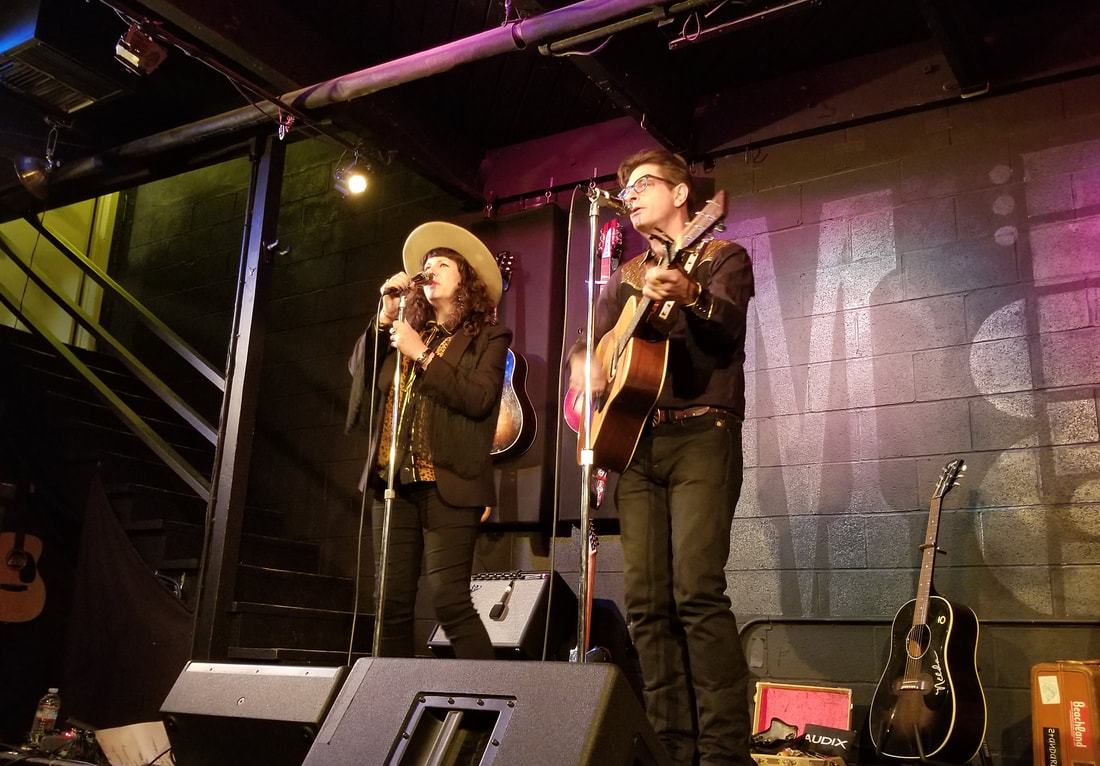
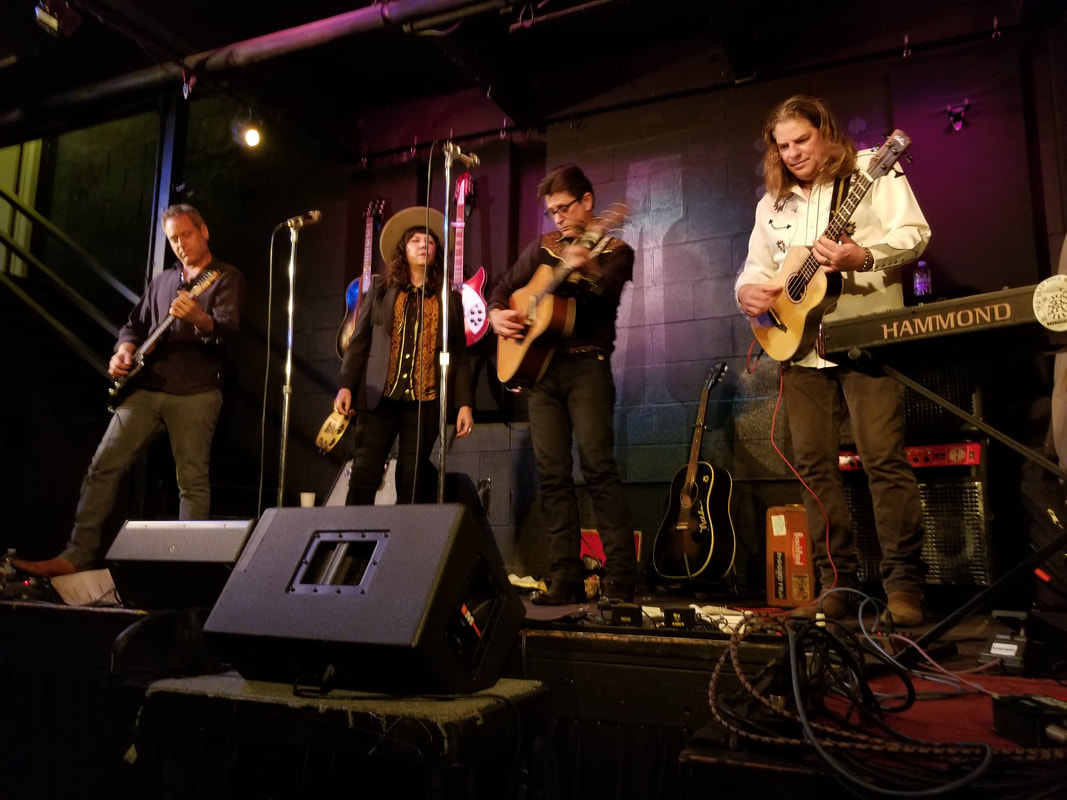
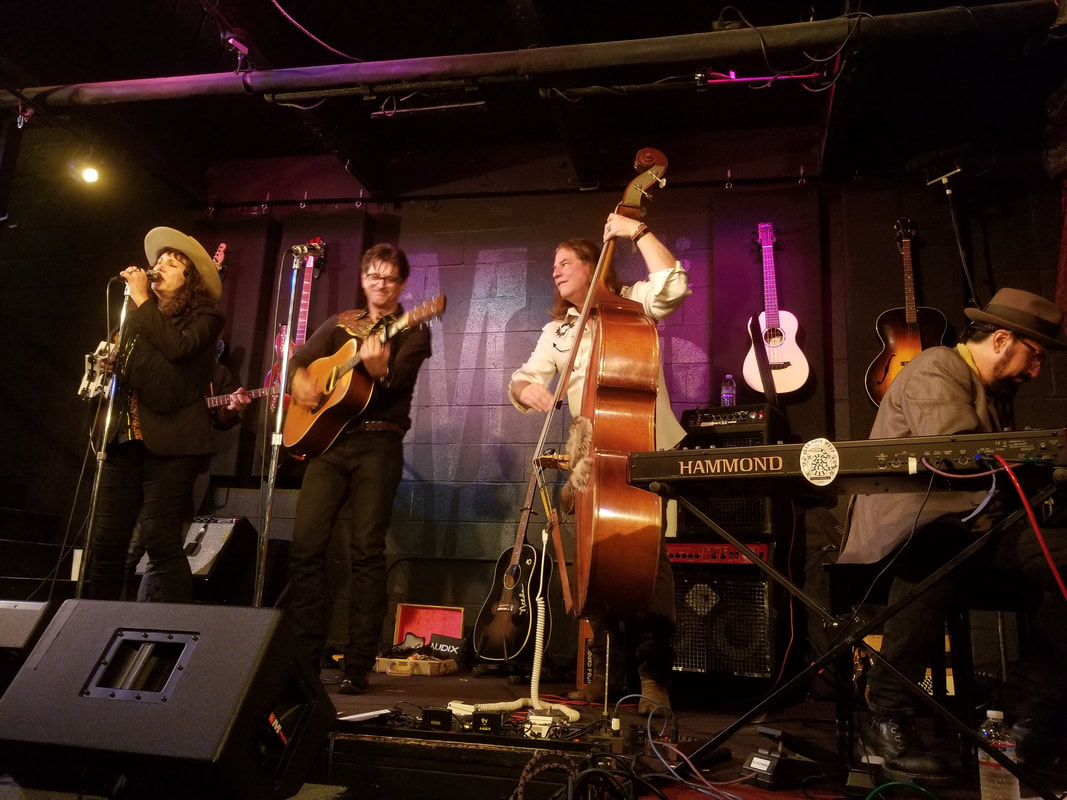
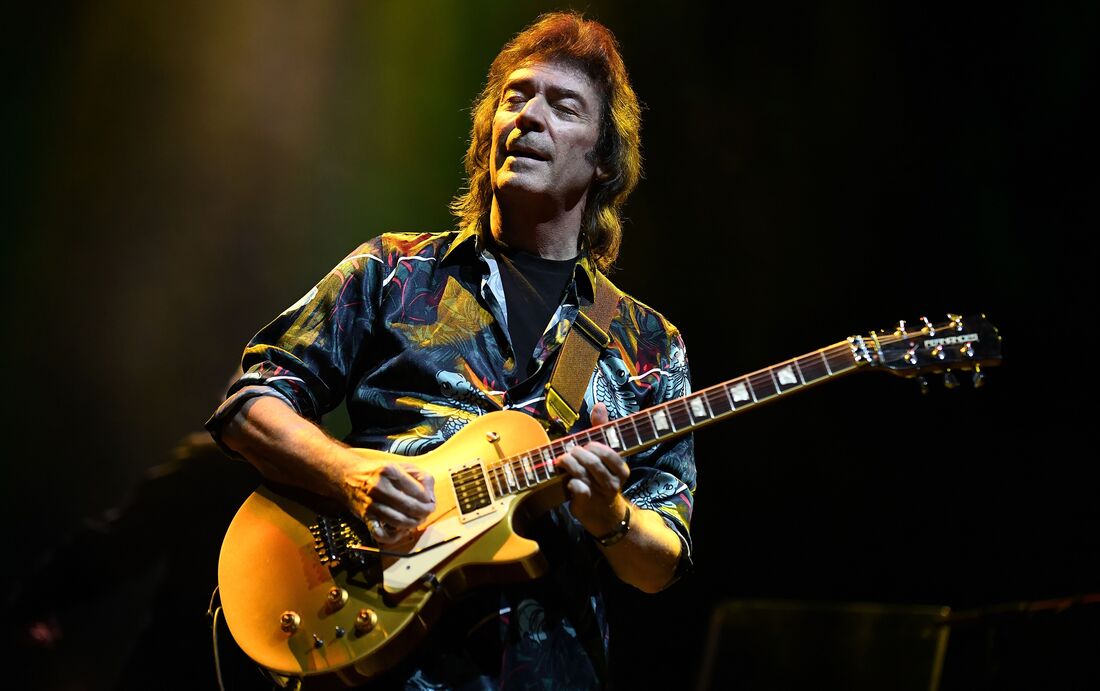
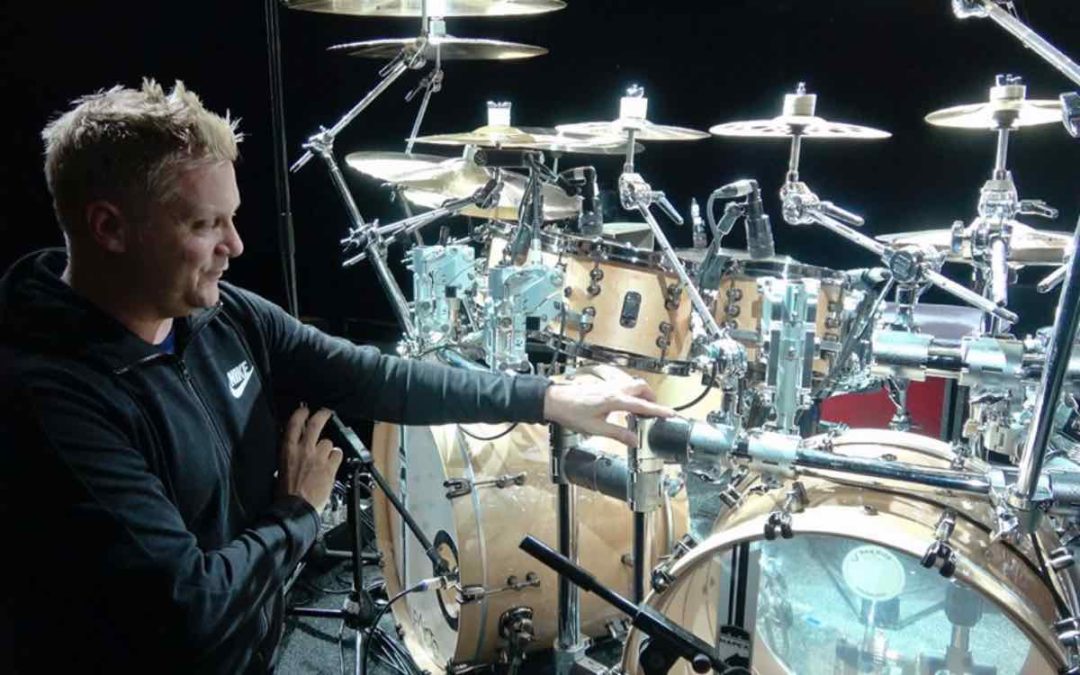
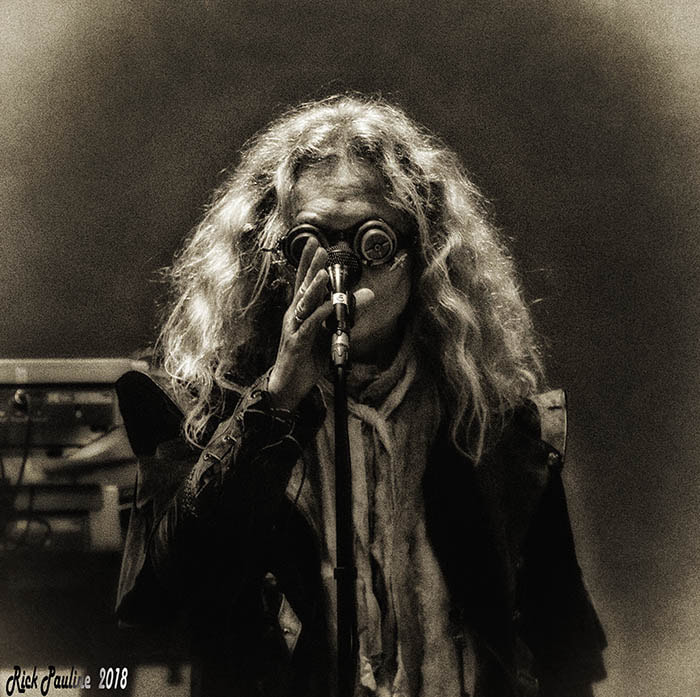
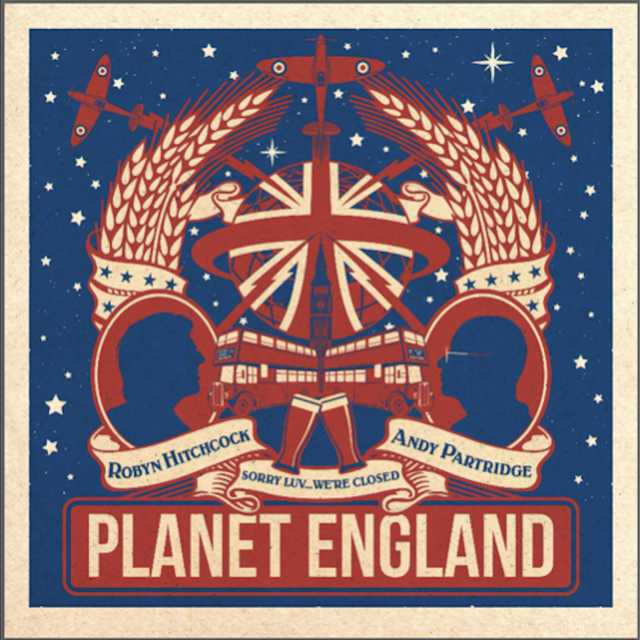
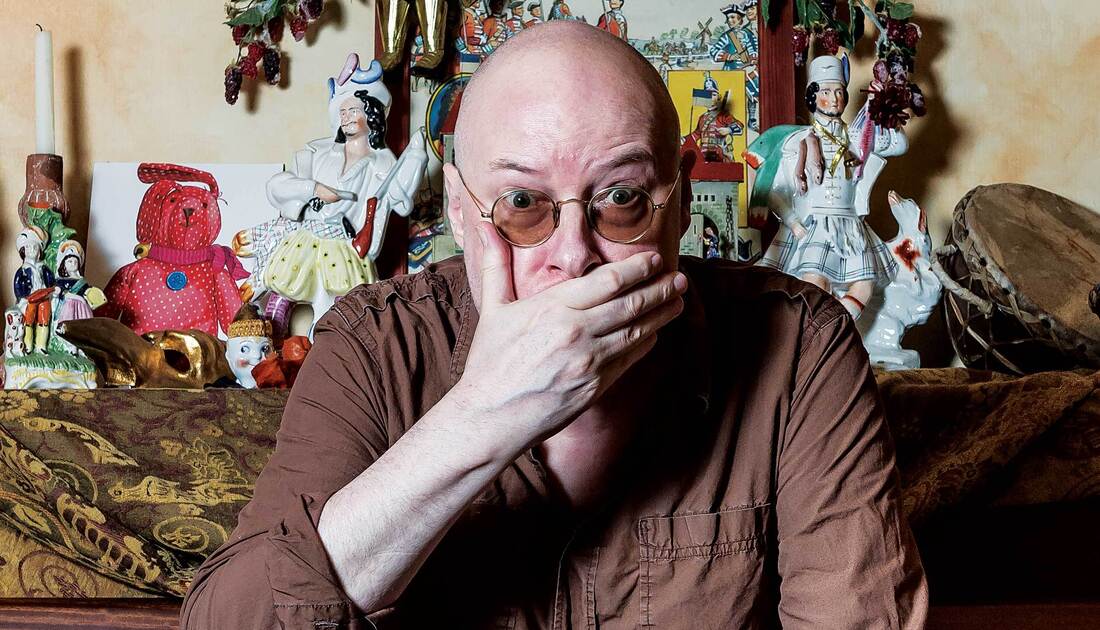
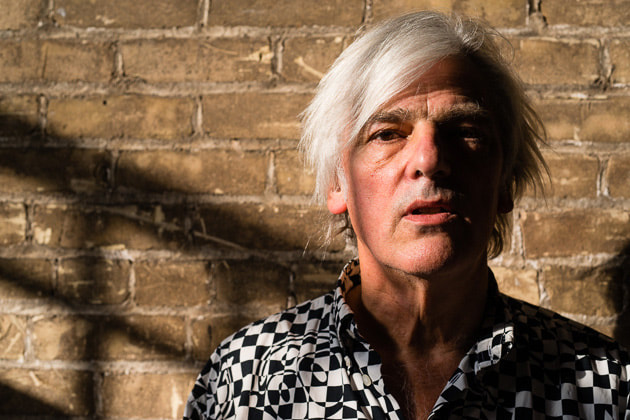
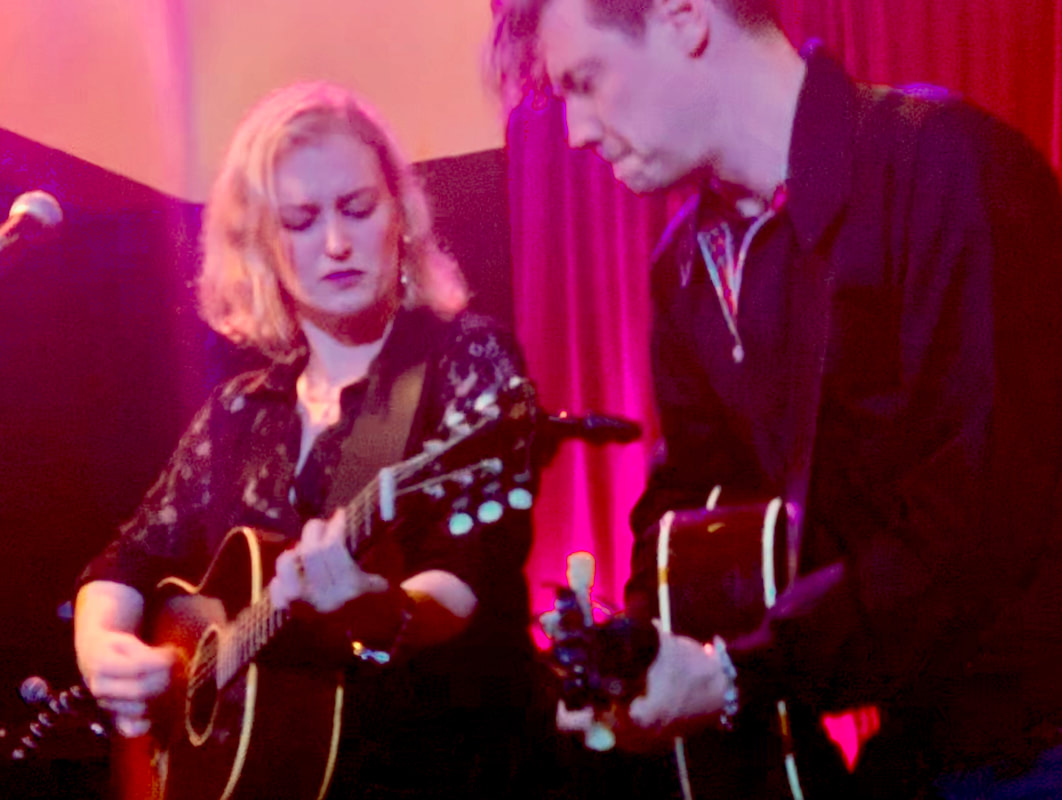
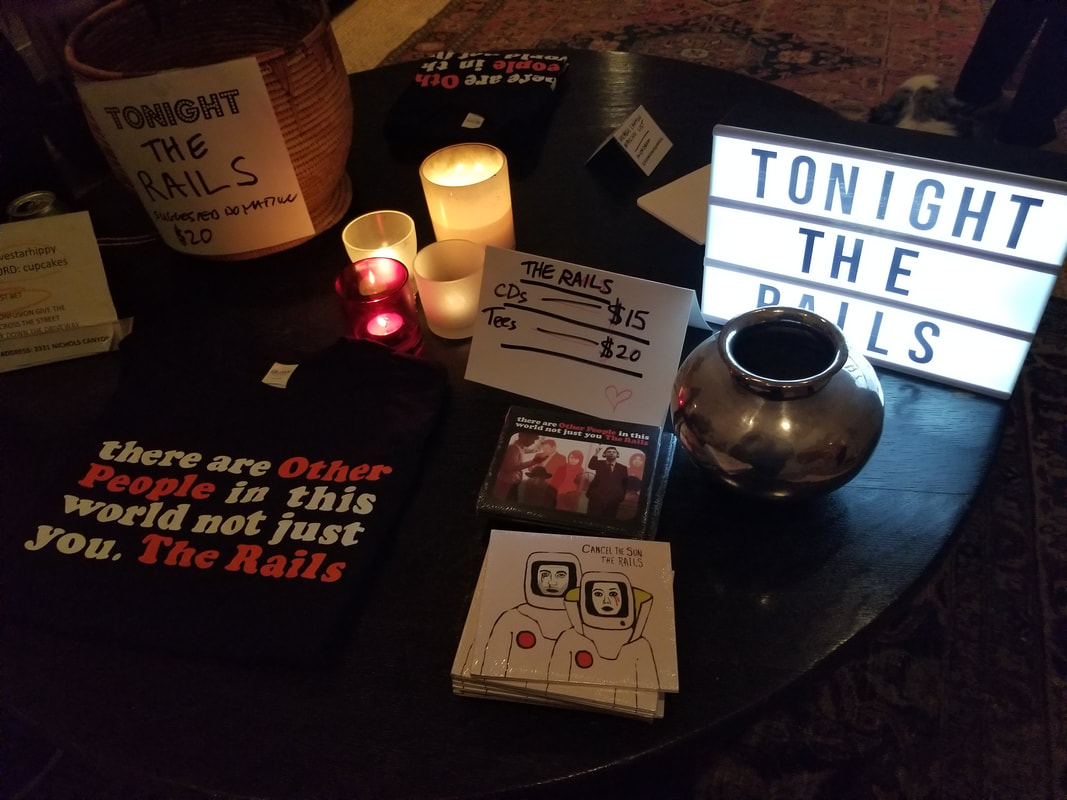
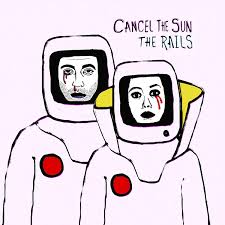
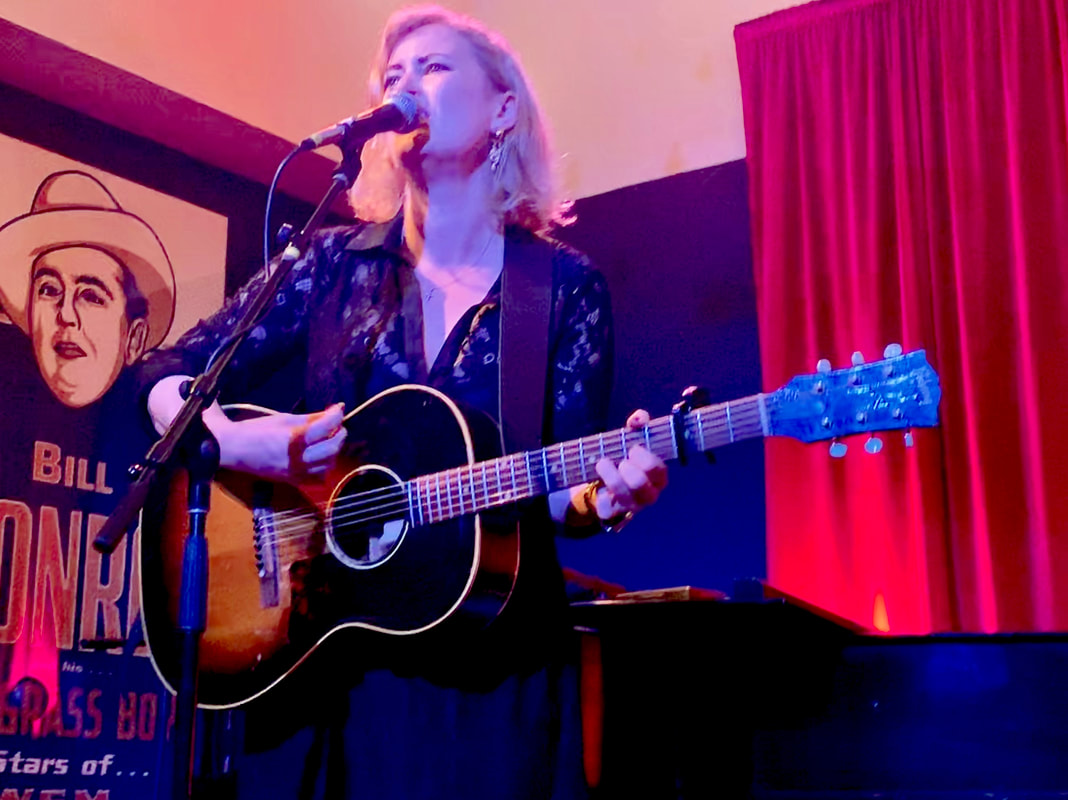
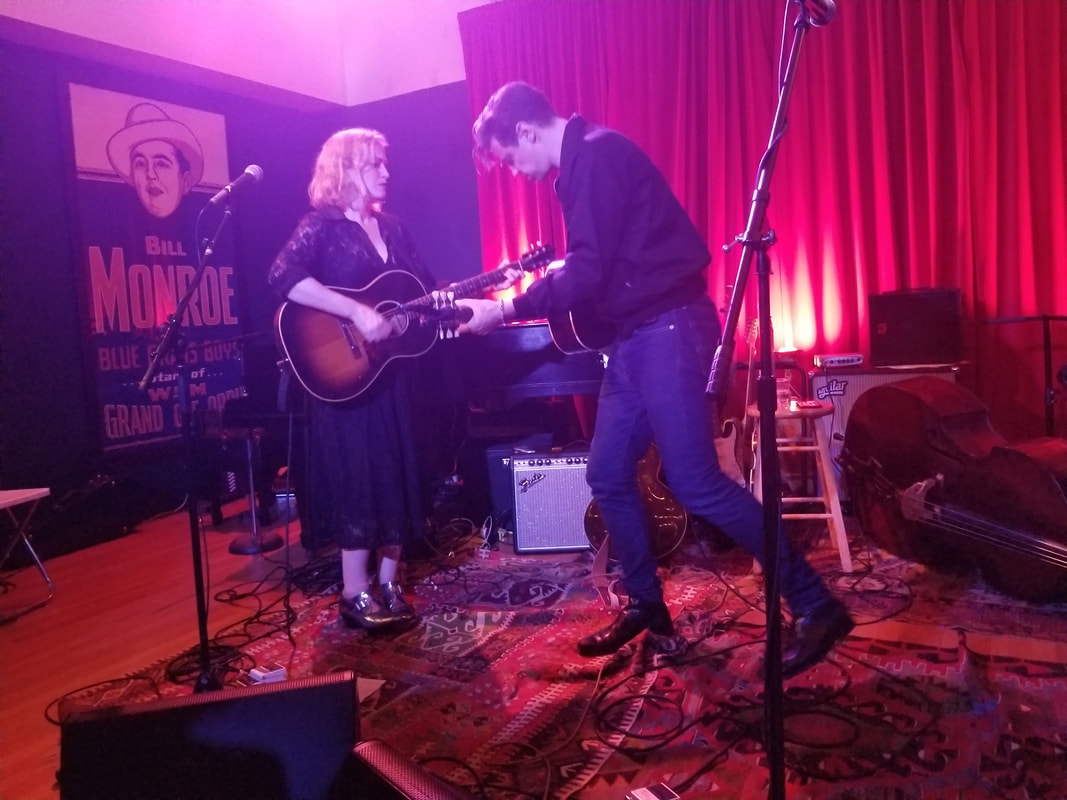
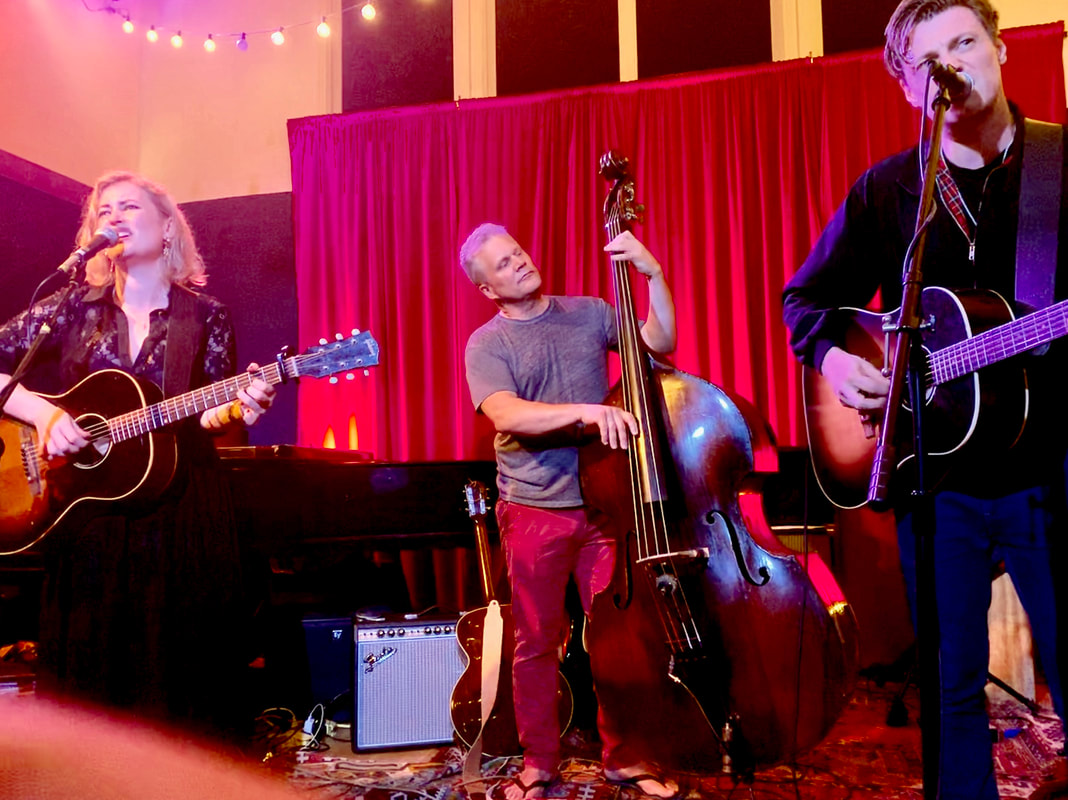
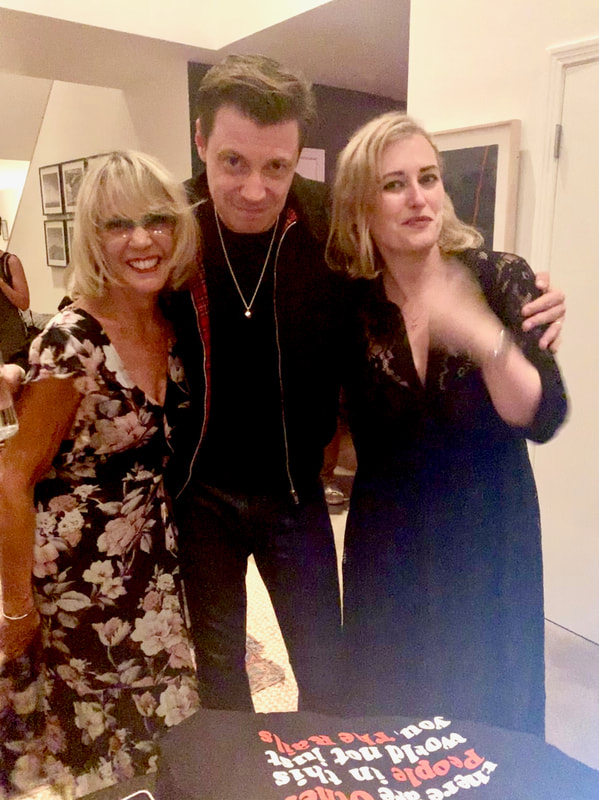
 RSS Feed
RSS Feed